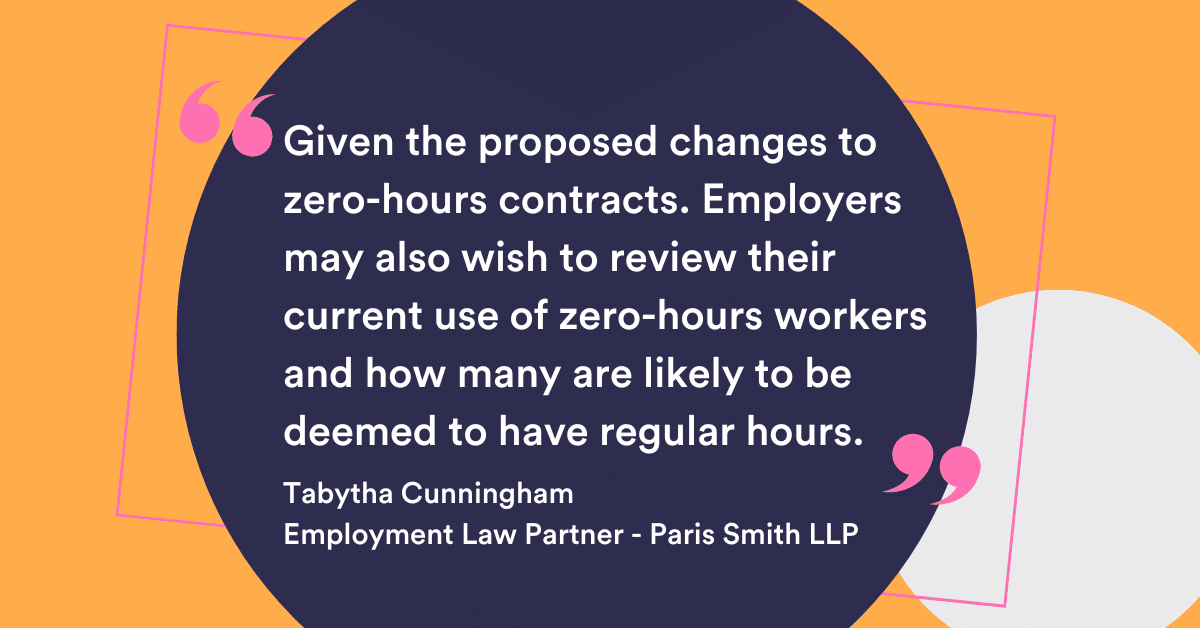The Labour Government: What’s changing with employment law?
The Labour Party had a lot to say about employment law in its manifesto prior to the July general election, with promises to ‘make work pay’. The party’s key messaging focuses on making work more secure for UK employees, making improvements to the minimum living wage, banning zero-hour contracts and ending fire and rehire.
The new government has confirmed it intends to hold true to this manifesto and, what’s more, to get the process started within the first 100 days of entering government.
So, what will be changing when it comes to employment law and what do employers need to be aware of?
There is a long list of proposed changes but below we highlight the key issues outlined by Labour that employers need to be aware of.
Fair Pay
- Changes to the National Minimum Wage – Labour intends to ‘make sure the minimum wage is a real living wage that people can live on’ and as such the minimum wage will reflect the need for pay to take into account the cost of living. In addition, they will remove the age bands and ensure that the living wage is properly enforced.
- Sick pay – removing the lower earnings limit and waiting time for Statutory Sick Pay (SSP).
- Strengthening the law to ensure hospitality workers receive their tips in full and that employers fairly allocate all tips in full (this is likely to be pro-rated based on how many hours worked).
Contracts and worker’s rights
- Outlawing zero-hours contracts – with changes to the notice required for any change in shifts or working time, and the compensation for any shifts cancelled or curtailed. The idea is to provide regular hours to everybody and remove the exploitative element.
- Reforming the law surrounding ‘fire and rehire’ – the practice of an employer making an employee redundant and then re-engaging them on reduced terms and conditions. For businesses this will mean that while restructure will remain viable there must be a proper process followed.
- Day one rights – Labour’s ‘New Deal’ will include basic individual rights such as protection against unfair dismissal, parental leave and sick pay from day one for all workers, to encourage people to move jobs.
- Single status of worker – Consultation on worker status.
- Redundancy rights and TUPE – strengthening rights in TUPE, for example by ensuring the right to redundancy consultation is determined by the number of people impacted across the business rather than in one workplace.
- Strengthening protection for whistleblowers.
- Self-employment – strengthening rights and protections to help self-employed workers thrive eg the right to a written contract.
Flexible working and work-life balance
- Ensuring flexible working is a genuine default.
- Right to switch off – following similar models to those that are already in place in Ireland and Belgium. Employers will no longer be able to assume that an email sent outside of work hours will be read.
- Carer’s leave – Consulting on whether carer’s leave should be paid and reviewing the implementation of the new April 2024 policy.
- Bereavement leave – clarify the law and entitlement, introducing the right to bereavement leave for all workers.
Trade Unions
Labour intends to modernise trade union legislation, with plans to introduce more rights for trade unions, and implement clear and consistent rules regulating access to workplaces for trade union members meeting and representing their members.
These rights will replace the limited rights of entry and include a new digital right of access, which will enable unions to contact remote workers.
Equality at work
- Tackling pay discrimination – Ensuring outsourced workers are included in gender pay gap reporting. Labour will also require larger employers (250+) to report on their gender pay gap data, with the likelihood that ethnicity and disability pay gap reporting will be required too.
- Menopause – Labour will require large employers (250+ employees) to produce Menopause Action Plans, setting out how they will support employees through menopause.
- Sexual harassment – Employers will have to be able to provide proof of the reasonable steps they have taken to prevent sexual harassment of their employees. Effective from October 2024, employees will be able to make a complaint directly to the Equality and Human Rights Commission and don’t have to contact their employer first.
What should employers do to prepare?
We don’t yet have a full understanding of when these changes will come into place – and indeed the specifics on many of the proposed reforms. There are some things that employers can do to ready themselves through.
Tabytha Cunningham, Employment Law Partner at Paris Smith LLP advises: “Employers that are recruiting should review their employment contracts. Labour has indicated that there will be exceptions to unfair dismissal protection to allow for probationary periods, which are long enough to allow performance to be assessed are likely to become more key.”
When it comes to the changes to zero-hours contracts and the reform of hire and refire, Tabytha says: “Given the proposed changes to zero-hours contracts. Employers may also wish to review their current use of zero-hours workers and how many are likely to be deemed to have regular hours.
“Given the proposed changed to hire and refire, employers that are planning to commence consultations under the current rules may wish to review their proposed timings in light of the potential changes in this area.”
With such a long to-do list of reforms and policy changes, it remains to be seen whether all of these will come to pass within the timeframe set out. However, being prepared by reviewing your organisation’s HR processes, contracts and policies now, means that you can be in the best position possible to act on the necessary changes when the new legislations come into play.
If you need additional HR resource to help transition you through this time of flux, then get in touch to discover how we can support you with interim or permanent HR needs.






